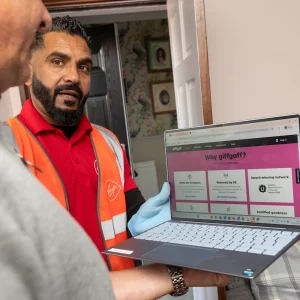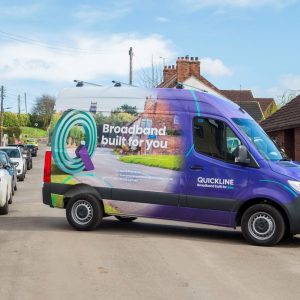Sponsored Links
EU Approves 3G Mobile Broadband Services for Use via 2G Spectrum
Posted: 29th Jul, 2009 By: MarkJ
The European Commission's (EC) Council of Ministers has followed the European Parliament in approving an EC proposal that changes the original GSM Directive of 1987 to allow modern 3G Mobile Broadband and future 4G services to use the 900MHz frequency band (refarming). Presently mobile operators can only use 900MHz for 2G voice and slower GPRS/GSM data transfers (about the speed of an old dialup modem).
The move could result in industry savings of up to €1.6 billion because operators will not need to invest as much cash into new Mobile Broadband infrastructure (fewer base stations). The 900MHz band also has a greater range and exists in areas where other bands have yet to be established. For example, just think of all the areas where your phone can get a 2G but not 3G signal.. there are a lot of those.
The updated Directive will be signed by the Presidents of the European Parliament and the Council of Ministers in September, though it will not come into force until October. This is partly because of the need to develop technical measures allowing for the co-existence of existing 2G phones/devices alongside newer 3G/UMTS systems.
However the move is also significant because it will place additional pressure on UK operators , specifically Vodafone and O2 , which own the lion’s share of 900MHz and have been somewhat reluctant to share it with rival operators ( e.g. Orange , Three (3) and T-Mobile ). The recent failure of Lord Carters Digital Britain report (here and here) to reach a quick agreement on the matter means that the process will now not be complete until the end of 2010.
To make matters worse T-Mobile is looking to sell its UK business, with both O2 and Vodafone in the frame as possible suitors. This could also place T-Mobile's complex network sharing agreement with Three (3) into uncertain territory and confuse the whole 900Mhz debate even further. Suffice to say that the 900MHz situation is likely to drag on for awhile, which could delay the government’s plans for a universal minimum UK broadband speed of 2Mbps by 2012.
The move could result in industry savings of up to €1.6 billion because operators will not need to invest as much cash into new Mobile Broadband infrastructure (fewer base stations). The 900MHz band also has a greater range and exists in areas where other bands have yet to be established. For example, just think of all the areas where your phone can get a 2G but not 3G signal.. there are a lot of those.
"The GSM standard has been a success story for Europe, where it was born. By updating the GSM Directive, the EU has paved the way for a new generation of services and technologies where Europe can be a world leader," said EU Telecoms Commissioner Viviane Reding.
"I would like to thank the European Parliament and the Council of Ministers for making this possible by swiftly agreeing to the reform of this very important piece of telecoms legislation. This reform will remove constraints on operators so that they can deploy new technologies in the GSM bands to develop high-speed mobile broadband services. This should give a welcome boost to Europe's wireless economy and help trigger the take-off of a Digital Europe."
"I would like to thank the European Parliament and the Council of Ministers for making this possible by swiftly agreeing to the reform of this very important piece of telecoms legislation. This reform will remove constraints on operators so that they can deploy new technologies in the GSM bands to develop high-speed mobile broadband services. This should give a welcome boost to Europe's wireless economy and help trigger the take-off of a Digital Europe."
The updated Directive will be signed by the Presidents of the European Parliament and the Council of Ministers in September, though it will not come into force until October. This is partly because of the need to develop technical measures allowing for the co-existence of existing 2G phones/devices alongside newer 3G/UMTS systems.
However the move is also significant because it will place additional pressure on UK operators , specifically Vodafone and O2 , which own the lion’s share of 900MHz and have been somewhat reluctant to share it with rival operators ( e.g. Orange , Three (3) and T-Mobile ). The recent failure of Lord Carters Digital Britain report (here and here) to reach a quick agreement on the matter means that the process will now not be complete until the end of 2010.
To make matters worse T-Mobile is looking to sell its UK business, with both O2 and Vodafone in the frame as possible suitors. This could also place T-Mobile's complex network sharing agreement with Three (3) into uncertain territory and confuse the whole 900Mhz debate even further. Suffice to say that the 900MHz situation is likely to drag on for awhile, which could delay the government’s plans for a universal minimum UK broadband speed of 2Mbps by 2012.
Search ISP News
Search ISP Listings
Search ISP Reviews
Latest UK ISP News







Cheap BIG ISPs for 100Mbps+
150,000+ Customers | View More ISPs
Cheapest ISPs for 100Mbps+
Modest Availability | View More ISPs
Latest UK ISP News
Helpful ISP Guides and Tips
Sponsored Links
The Top 15 Category Tags
- FTTP (6915)
- BT (3917)
- Politics (3119)
- Business (2821)
- Openreach (2702)
- Building Digital UK (2537)
- Mobile Broadband (2526)
- Statistics (2161)
- FTTC (2152)
- 4G (2131)
- Virgin Media (2064)
- Ofcom Regulation (1801)
- 5G (1781)
- Fibre Optic (1616)
- Wireless Internet (1615)
Sponsored
Copyright © 1999 to Present - ISPreview.co.uk - All Rights Reserved - Terms , Privacy and Cookie Policy , Links , Website Rules





























